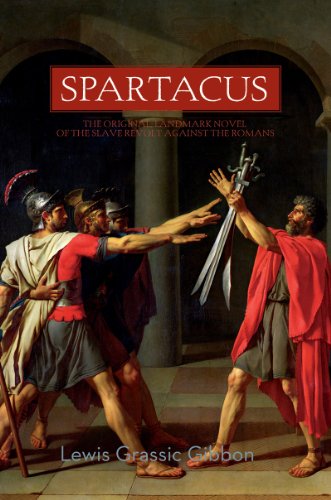Spartacus
Historical novels, especially those dealing with well-known events, lack suspense. As we watch the slave army of Spartacus defeat one Roman army after another, we know not to hope for its ultimate success. Lewis Grassic Gibbon (pseudonym of James Leslie Mitchell) was one of many left-wing authors, such as Arthur Koestler or Howard Fast, who was drawn to the story of the man Marx called “the finest fellow in the ancient world.” In 1933, when this book first appeared, revolutionary movements were using names like the Spartacist League.
Like any good epic, the novel begins in medias res with an undisciplined slave army ravaging the countryside. The main fictional addition to the story is a Greek eunuch named Kleon who carries a scroll of Plato’s Republic and serves as Spartacus’s intellectual inspiration. Various national leaders include Jews, Gauls and Germans, representing the characteristics of their tribes. The rebels are eventually trained and organized into the Free Legion, a force that would seem to have a chance of victory if we did not already know the painful outcome. The Romans make brief appearances in order to be slaughtered at first and later to slaughter. Spartacus himself shows moderation and mercy except for a moment of vengeance for a fallen comrade when captured Romans are forced to perform as gladiators. Captured women are treated with kindness and respect.
This edition has an introduction which summarizes Plutarch’s history as well as giving background on Gibbon’s other works. There are many untranslated Latin terms, so a glossary would have been helpful. Maps would have allowed the reader to follow the shifting scenes of the action.










